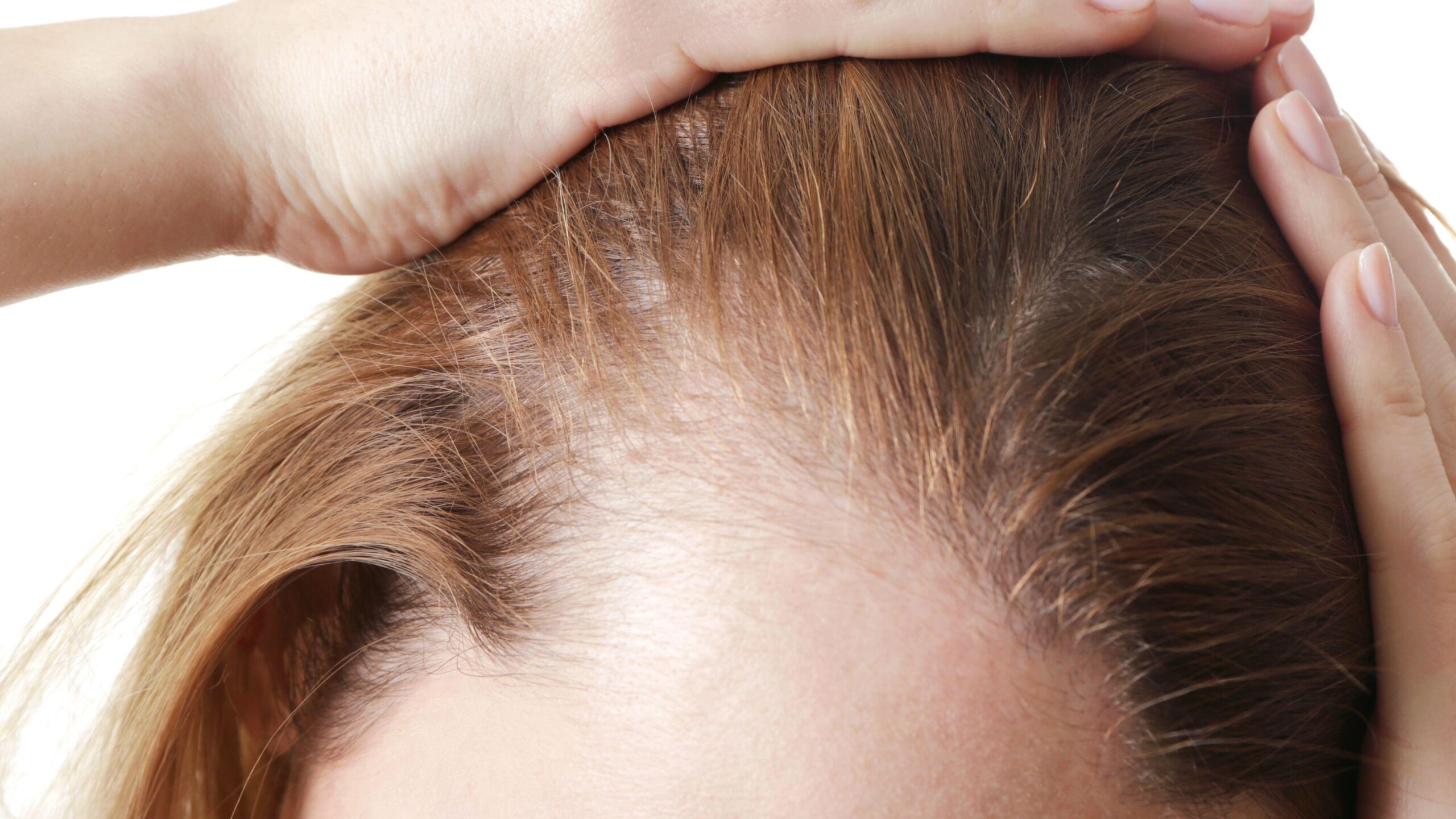Hair loss can be a symptom of an underlying medical condition or a standalone health issue. In both cases, knowing the cause and how to address the problem can make it a much more bearable condition. Fortunately, there are several treatable causes of hair loss that your doctor can help you identify. There is also a wide variety of accessible approaches for natural remedies that can stop hair loss and restore the beauty and health of your hair.
“Beautiful hair, beautiful woman” – you’ve heard this expression, right?! Unfortunately, all of us have suffered from hair loss at some point in our lives. Sometimes, hair loss exceeds normal shedding and becomes a medical issue, leading to hair thinning, bald patches on the scalp, or slow regrowth of hair.
In this article, we will explore some of the common causes of hair loss and learn how to correct them with the help of natural approaches, lifestyle changes, dietary supplements, and more.
Causes of hair loss in women
Normal hair loss is up to 100 hairs per day. More intense shedding of hair is normal from 2 to 4 months after major hormonal changes such as childbirth, menopause, or pregnancy. However, when hair loss significantly increases or persists for an extended period, it may be a symptom of an issue that requires diagnosis and treatment.
Let’s look at some of the common causes of hair loss in women:
- Nutritional reasons: An imbalanced diet can contribute to hair thinning or loss. Naturopaths focus on using food as a way to improve health and hair growth. Deficiencies in certain vitamins and minerals such as vitamins B, C, D, iron, zinc, and biotin may play a role in hair loss. Therefore, reviewing the diet and, if necessary, including dietary supplements can help.
- Medical conditions: Excluding medical issues and infections is crucial. Some medical conditions such as anemia, hypothyroidism, and polycystic ovaries can be related to hair loss. These issues need to be diagnosed and treated by a specialized healthcare professional.
- Genetics: Hereditary predisposition can be a cause of hair loss. If you have a family history of early hair loss or baldness, this may increase the risk of hair loss for you.
- Stress: Psychological stress plays a role in the onset of hair loss. Hormones released during stress can affect hair growth. Stress management techniques and physical exercise can be helpful in this type of hair loss.
- Hormonal changes: Besides major hormonal changes, specific medical conditions or the use of certain medications can lead to hair loss.
The treatment of hair loss depends on its cause and may involve changes in the diet, taking dietary supplements, treating medical conditions, managing stress, and even medication in certain cases.
Nutrition for Hair Loss
Nutrients are chemicals that support the reactions occurring in our cells every day, keeping us alive. Skin, nails, and hair cells are constantly renewing and require a significant amount of nutrients to support these processes. Therefore, issues with skin, hair, and nails are often the first signs of nutrient deficiencies.
This section will explore common nutritional reasons for hair loss in women, including protein, mineral, vitamin, and fat deficiencies, as well as ways to treat these problems.
Protein Deficiency
Protein is an essential nutrient found in meat, fish, beans, lentils, soy products, and some dairy items. A deficiency in protein can lead to hair discoloration, unusual texture, and slow hair growth. Chronic stomach issues can also reduce protein absorption.
For those not consuming enough protein, it is recommended to increase intake by consuming protein-rich foods. Taking collagen or protein supplements can also be beneficial. Experimenting with recipes containing beans, lentils, and meat can be helpful.
Vitamin Deficiency
A lack of vitamins B and D is linked to hair loss. Vitamin B7 (biotin) and vitamin D play crucial roles in hair growth. Taking vitamin D supplements is recommended if you have a deficiency in this important nutrient. Additionally, both vitamin D and biotin have been shown to promote hair growth. Complex multivitamins are a good way to ensure daily requirements of vitamins B and D are met. Be cautious of excessive vitamin A intake, as it may lead to hair loss.
Mineral Deficiency in Hair Loss
Deficiency in minerals like iron and selenium is directly linked to hair loss. A lack of these nutrients can result in hair weakness and thinning. Correcting these deficiencies is essential for healthy hair recovery.
- Iron is particularly vital for hair health as it aids in delivering oxygen to the hair roots and supports its growth. Foods like red meat, eggs, spinach, and broccoli are rich in iron and can help meet daily needs.
- Selenium also plays a crucial role in hair health. This mineral protects cells from damage that may lead to hair loss. Brazil nuts are among the best sources of selenium, and consuming them can help fulfill your selenium needs.
Health Conditions Leading to Hair Loss
Various health conditions can cause hair loss at different stages of life due to hormonal changes or medical issues. Understanding the connection between health conditions and hair loss can aid in more effective problem management.
Postpartum Hair Loss
Hair growth during pregnancy is often intense, but postpartum hair loss is common. This is typically temporary and is related to hormonal changes and nutrient deficiencies. Causes may include stopping prenatal vitamins, hormone imbalances, or insufficient sleep. Correcting nutrient deficiencies and undergoing specific hormonal status tests are crucial for resolving this problem.
Hair Loss Related to Thyroid Gland
Hypothyroidism can cause hair loss. This issue can be resolved through hormonal treatment or taking supplements containing iodine and selenium. Pay attention to your biotin intake, as it can affect thyroid function test results.
Autoimmune Hair Loss
Autoimmune diseases can lead to intense hair thinning. Treatment typically involves anti-inflammatory approaches and optimizing immune function through diet and supplement intake.
Infections: Bacterial and Fungal Hair Loss
Infections such as staphylococcal infection can lead to scalp issues and hair loss. Treatment includes using local cosmetic products and taking medications to combat infections.
Scalp Conditions like Psoriasis Psoriasis can cause severe hair loss. Treatment depends on the extent of the condition and may include adhering to a specific diet and taking antioxidants and omega-3 fatty acids.
Drug-Induced Hair Loss
Some medications can cause hair loss. Consult a doctor if you notice hair loss after starting a new medication.
Correcting Hair Loss from the Inside Out
How can you restore your hair from the inside out? To do so, address the deficiencies and health issues that lead to hair loss. Start by correcting nutrient deficiencies with a diverse and nutrient-rich diet, high in vitamins, minerals, and proteins. Ensure adequate intake of selenium, biotin, vitamin D, iron, and other important nutrients. Pay attention to your lifestyle – optimize sleep and rest, reduce stress, and stay active to maintain overall health and well-being.
Supplements can be helpful for addressing specific nutrient deficiencies, but be cautious with dosages. Regular consultations with a specialist are essential as they can provide a personalized treatment plan and monitor progress. Remember that hair restoration from the inside out takes time and patience, but with the right steps and care, desired results can be achieved.


